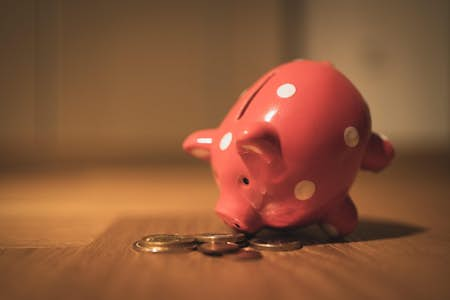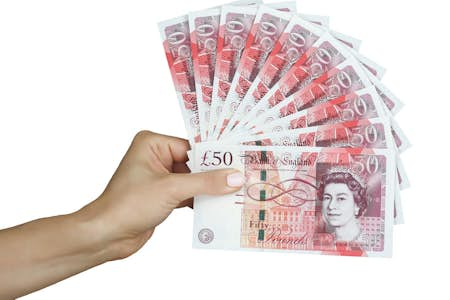With more of us doing more shopping online – begrudgingly or enthusiastically – you'll undoubtedly have seen adverts shouting "Buy Now, Pay Later”. Is this just the store credit of yesteryear, repackaged for a new generation?
There are similarities between buy now, pay later – known as BNPL – and interest-free credit that was all the rage through DFS sofa sales and the Littlewoods catalogue. It works a little differently now, although the concept is broadly similar.
How does buy now pay later work?
As the name implies, buy now, pay later lets you make a purchase without worrying about the full cost. Instead of paying the total cost there and then, you can spread it. Many companies offer you the option to pay in weekly, fortnightly or monthly instalments. You could even defer the full payment until a set date in the future. One popular choice is to delay payment for a year from the time of purchase.
Lenders market BNPL slightly differently from traditional forms of borrowing. But at its core, it's precisely that: a short-term loan and a form of credit. It's worth keeping this in mind as it could harm your credit score.
Unlike other lenders, BNPL companies let you 'borrow' the money interest-free - so you won't end up paying any more than you would have if you paid the retailer directly. If you manage to make your payments on time, you don't need to pay any extra.
But how can BNPL companies make money? The answer is they help retailers increase sales. BNPL companies take a cut from anything they help the retailer sell. The popularity of BNPL means retailers are happy to do this. After all, BNPL can both attract new customers and be a valuable feature for existing ones.
Here is a representative example of the typical steps for buy now pay later:
- You choose what you want to buy
- At the checkout, the retailer offers you a selection of BNPL companies to choose from (or a single option in some cases)
- You can select from different payment options, which include paying in instalments or delaying the payment of the total amount
- Your chosen BNPL company pays the retailer on your behalf
- You give your debit or credit card details to the company and then make the payments at the set times
You will need to make an account with the BNPL company the first time you use them. After that, you could have multiple purchases with the company at any given time. However, there are usually limits to the total amount you can borrow from them. Your credit limit is more likely to be in the £100s than the £1,000s. You can often increase the total amount if you pay on time and use the company regularly.
When is buy now, pay later available to customers?
Seeing a buy now, pay later option is unavoidable in today’s world of online shopping. Although it is available in many high-street stores, BNPL is typically associated with online retailers and has grown in popularity in recent years. Citizens Advice's research from 2021 showed more than 17 million UK residents using BNPL options.
A few big companies dominate the industry. For example, Klarna works with over 6,500 retailers and has around 8m customers in the UK. The other two big players include Clearplay and Affirm, the latter of which has partnered with Amazon and Apple.
PayPal, the online payments behemoth, launched "Pay in 3," in 2020. The scheme works with the same concept, allowing customers to make interest-free monthly payments, or "slices," as they now tend to get called.
What are the benefits of BNPL?
The main advantage of BNPL is the ability it gives you to delay your payments. Making repayments in smaller bites or having the option to pay the total balance later is helpful in the current economic climate. The interest-free instalments also guarantee you don’t pay any extra.
You can't always predict when you need to buy something. Household equipment can break, or you might find yourself without a working mobile. If you need to buy something but can't afford it at that moment, these schemes can be a good option. Instead of waiting for the next paycheque, you can get what you need.
BNPL is also an easy scheme to use. The method is convenient, and setting up your payments won’t add extra time to your shopping!
What are the downsides to BNPL?
Like most things in life, BNPL has its disadvantages. The schemes make it easier to accumulate debt if you don't keep track of what you need to pay. If you aren't good at budgeting, you might forget you have money coming out of your bank account in six months' time.
While you don’t pay anything extra for your purchase, you could face substantial late payment fees. Each company has different models, but if you miss a payment, you'll be charged anything from £5 to £15. It's worth noting that PayPal's 'Pay in 3' scrapped its late fees in 2021. However, most BNPL providers add late payment fees to your outstanding balance, although many also cap late payment fees at a maximum limit. For example, Laybuy's maximum late repayment cap sits at £24 per purchase.
Missed or late repayments will, however, negatively impact your credit report. In addition, your debt could be passed on to a debt collection agency if you consistently miss payments. Adverse credit events can later cause problems when looking to get credit for something else.
Savvy shoppers also know that putting a purchase of over £100 on a credit card gets you Section 75 consumer protection. This means your credit card company is liable for faults or problems with whatever you buy.
When you use BNPL, you're not buying the item; you're buying the services of Klarna, Clearpay, or Laybuy. So, for example, say you buy a new pair of trainers for £120 that fall apart after one jog. If you buy with a credit card, your provider is liable to refund you, whereas if you use BNPL, you’ve got no protection.
We spoke to Yasmin Purnell from The Wallet Moth, who told Pension Times: "BNPL schemes can be a useful way to split big purchases over a couple of months. However, take caution not to opt-in to pay later schemes just because you don't want to pay for items upfront. It's a slippery slope to missing payments and incurring hefty fees on top of the original purchase.
"Don't be fooled into thinking you're getting a better deal - unless you can 100% commit to meeting your payments in time without incurring any additional fees, it's often wiser to pay for an item at the time of purchase and avoid the risk of impacting your credit score. If you don't have the fund to afford something, it's wiser to consider how to manage your budget to free up the cash in your account first."
What do the regulators think?
BNPL is a short-term borrowing solution, and not all BNPL products fall under Financial Conduct Authority (FCA) regulation. While the FCA has powers to enforce compliance with consumer protection legislation, many products have no regulatory framework.
The government has announced a plan to ensure BNPL companies fall under the FCA’s remit. The changes will provide more thorough protection for consumers. BNPL companies must conduct more rigorous affordability checks and have policies to protect vulnerable customers. The proposed regulation would:
- Make BNPL providers carry similar checks to credit card or loan providers
- Let you complain to the ombudsman about BNPL products
- Provide you with the Section 75 protection
How to make the most of BNPL
BNPL can be a valuable tool in your arsenal of payment options, along with credit cards, overdrafts, and good old savings. It's a good idea if you know what is happening with your finances and you can plan your expenses effectively.
Prone to overspending or got an unstable income? You may find it harder to manage payments coming out of your account, sometimes without a reminder.
Making your payments on time is the simplest way to enjoy the benefits of using BNPL. If you're thinking about using BNPL, know when you will have the money to pay back. You don't want to use BNPL to get a new cooking set without knowing if you can afford it in the future.
As you make the purchase, be aware of the terms and conditions. Remember to always read the small print and figure out whether there are any late payment fees or hidden fees.
You could also set up a reminder a few days before a payment is due to ensure you have the money ready in your account. If you know you can't pay, contact the company to talk about your options. BNPL companies may be able to change the payment date so you can avoid late payment fees or other negative consequences.
Remember that if you have a complaint about an item or service you've bought, you should complain to the retailer. However, if complaining directly to the retailer doesn't solve your problem, you can contact the Financial Ombudsman Service or use schemes like Resolver.
If your issue is with the BNPL provider, the process to complain is similar. Talk to the provider first. Most of them provide information on their official website on how to make a complaint. Keep in mind that the sector is largely unregulated so far, so your options are more limited!
Remember this about buy now, pay later
In days gone by, you'd know BNPL as store finance or interest-free credit. The overarching concept is still the same, with modern world tweaks that have made it accessible to the younger generation.
When you need to make a big purchase quickly and don't want to go down the credit card and overdraft route, BNPL can be a practical option. However, be cautious about becoming reliant on BNPL, and ensure you can manage your ins and outs, so you don't get unstuck with charges.
Image Credit: Christiann Koepke at Unsplash








